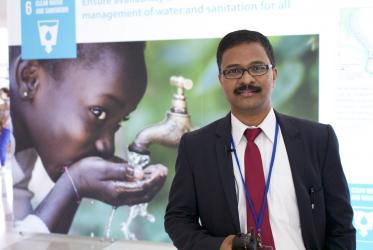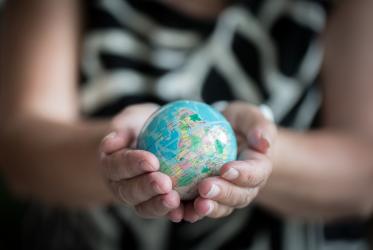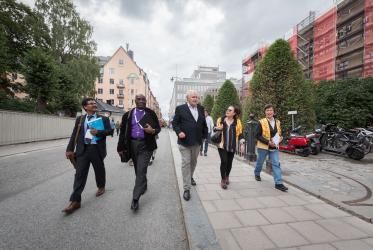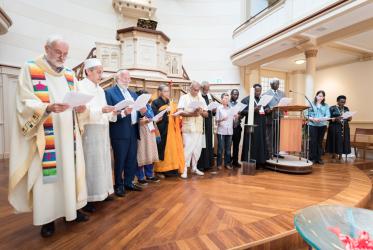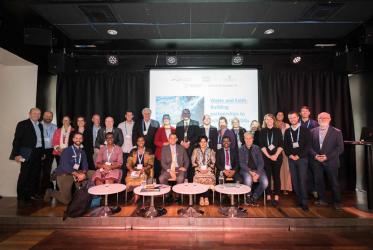Displaying 41 - 60 of 83
Paving the way for ecumenical studies, learning English in Bossey
24 September 2018
Assisi: On the ecumenical pilgrimage into a more sustainable future
03 September 2018
Faith and Water: Translating words into action
30 August 2018
What difference does dressing in black make?
02 August 2018
Working toward an AIDS-free generation
26 July 2018
Building bridges of faith in the HIV response
25 July 2018
Building Bridges in the global HIV response
25 July 2018
Echoes from Yangon
26 October 2017
